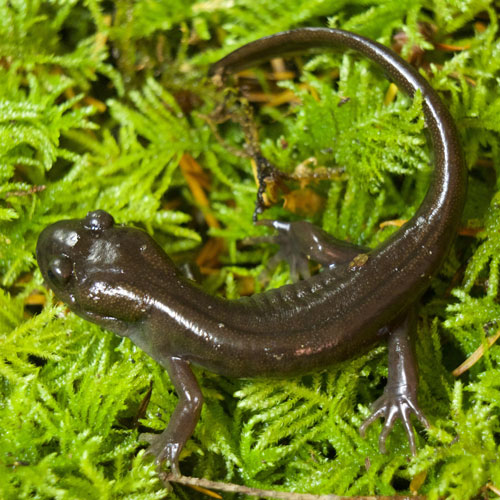If I lick a frog or a toad, what will happen?
If you are lucky, nothing will happen! However, many frogs have bacteria and parasites that can be harmful to humans including salmonella, which can be a very unpleasant experience. Some frogs secrete toxins from their skin and if you are unlucky enough to lick one of those, serious repercussions could happen. There is no way to know how much of the toxin you ingested and how you will react. Depending on the toxin, you could get very ill, hallucinate or possibly even die. Please do not lick frogs (or toads)!
Are frogs hallucinogenic?
Some frog/toad toxins are neurotoxins and can be hallucinogenic. There is great risk in neurotoxins as they also interfere directly with the nervous system. They can disrupt your ability to think, move and even interrupt your regular heartbeat.
Will you get warts if you touch a frog/toad?
No, there are no amphibians that give you warts. This myth has been around for a long time and is probably related to the fact that many frogs and toads have warty looking bumps on their skin. These are glands and do not secrete anything that can cause you to have warts! Although some skin secretions of some amphibians may irritate your skin and cause a rash. Warts are actually caused by viruses.
What happens if you freeze a frog?
Most frogs will die if you freeze them. However, there are some frog species that can survive freezing temperatures by maintaining a high level of glucose in their blood that acts like antifreeze. Some of the frog will actually freeze, like their bladder, but their blood and vital organs do not freeze. The heart can stop beating and the frog can stop breathing, but it when it thaws out, it will still be alive.
If I catch a frog, can I keep it as a pet?
Although it is tempting to keep a frog that you find as a pet, it is really a bad idea for a number of reasons. They could carry bacteria, parasites and/or diseases that you do not want in your home. Often wild caught animals die in captivity from stress; they are not used to living in glass cages! It can be really difficult for them to adjust their diet from wild caught food to crickets that are most often used for frogs in captivities. It is also difficult to get the right environmental conditions, including temperature, de-chlorinated water and moisture levels. You also may expose them to chemicals and pathogens from your hands or your home. Certain amphibians are endangered and it is actually illegal to have them as pets!
Frogs are awesome and if you really, really want a pet frog than look into captive bred frogs at your local pet store. The can give you instructions on how to properly maintain and feed your pet frog so that it is happy and healthy!
What should I do if I find a frog?
Admire it, take a picture and let it go.
Why do frogs pee on you when you pick them up?
They pee to try and make you drop them so they can escape. Many animals will either urinate or defecate when handled or threatened. This is a normal defense mechanism to try and avoid being eaten. Often their urine smells and tastes bad and will make a predator drop them and they can make a quick hop away to safety.

Amphibians & Reptiles of Washington
Do you know where rattlesnakes live in our state? Or which salamander breathes through its skin? Explore the fascinating diversity of the 26 species of amphibians and 28 reptiles found in Washington state.

